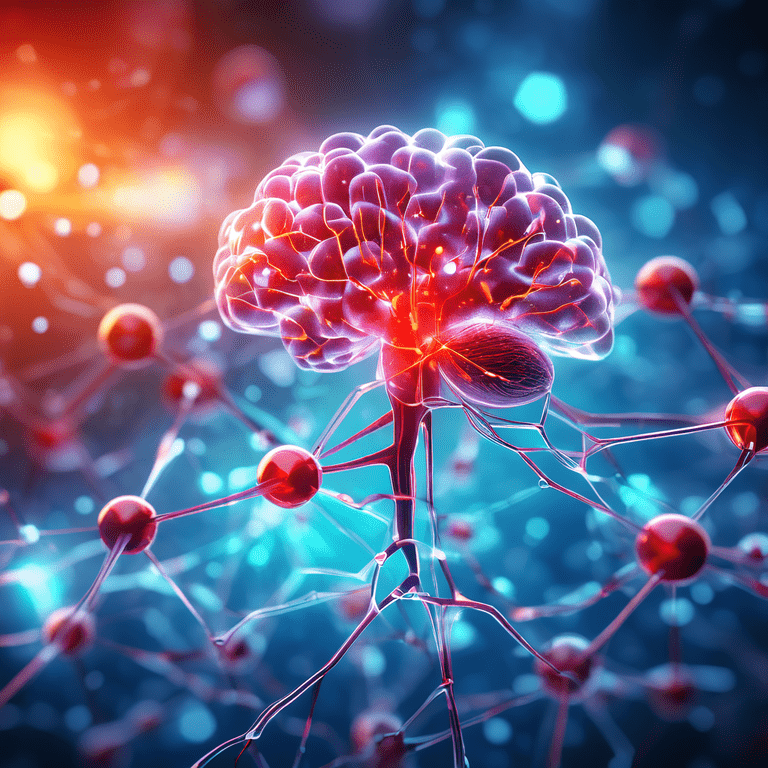Ibogaine Therapy for Addiction Recovery: A Comprehensive Guide
Ibogaine Therapy for Addiction Recovery: A Comprehensive Guide
Addiction is a pervasive issue affecting millions worldwide, with traditional treatment methods often falling short in providing long-term solutions. In recent years, alternative therapies such as Ibogaine treatment have gained attention for their potential to address addiction more comprehensively. This guide explores Ibogaine therapy, its mechanisms, applications, benefits, risks, and more to provide a comprehensive overview for those considering this unconventional approach to addiction recovery.
Introduction to Ibogaine Therapy
What is Ibogaine?
Ibogaine is a psychoactive substance derived from the root bark of the Tabernanthe iboga plant, native to West Africa. It has been traditionally used in spiritual and healing rituals by indigenous peoples for centuries.
History of Ibogaine Therapy
The modern use of Ibogaine for addiction treatment traces back to the 1960s when its potential to interrupt addiction cycles was discovered. Since then, it has gained popularity as an alternative therapy for various substance dependencies.
Mechanism of Action
How does Ibogaine work?
Ibogaine interacts with neurotransmitter systems in the brain, particularly those involved in addiction pathways. It is believed to reset neural networks, providing a window of opportunity for individuals to break free from addictive behaviors.
Neurobiological effects
Ibogaine acts on multiple receptors, including serotonin, dopamine, and opioid receptors, leading to profound alterations in brain activity. These effects are thought to facilitate both psychological and physiological healing.
Applications of Ibogaine Therapy
Addiction treatment
Ibogaine therapy has shown promising results in treating various addictions, including opioids, alcohol, and stimulants. It is particularly effective in addressing cravings and withdrawal symptoms.
Psychological healing
Beyond addiction, Ibogaine has been reported to induce profound introspection and emotional healing, making it valuable for addressing underlying psychological issues contributing to addiction.
Spiritual growth
Many individuals undergoing Ibogaine therapy report spiritual experiences, often described as profound and transformative. These experiences can catalyze personal growth and provide a newfound sense of purpose.
Benefits and Risks
Positive effects of Ibogaine therapy
Ibogaine has the potential to provide rapid relief from addiction cravings and withdrawal symptoms, often resulting in long-term abstinence. It can also offer insights into the root causes of addiction and facilitate lasting behavioral changes.
Potential risks and side effects
Despite its therapeutic potential, Ibogaine carries risks, including cardiac complications, hallucinations, and psychological distress. Proper medical screening and supervision are essential to mitigate these risks.
The Process of Ibogaine Therapy
Pre-treatment preparations
Before undergoing Ibogaine therapy, individuals must undergo thorough medical and psychological evaluations to ensure they are suitable candidates. It is essential to abstain from certain substances and medications beforehand to minimize risks.
Administration methods
Ibogaine can be administered orally in a clinical setting under medical supervision. The dosage and duration of treatment vary depending on individual factors such as addiction severity and medical history.
Post-treatment care
Following Ibogaine therapy, patients require ongoing support and monitoring to address any lingering withdrawal symptoms or psychological challenges. Integrative aftercare programs are crucial for sustaining recovery.
Legal Status and Accessibility
Current legal status
The legal status of Ibogaine varies globally, with some countries banning its use due to safety concerns, while others permit it for therapeutic purposes. Legal restrictions can impact accessibility for those seeking treatment.
Availability of Ibogaine therapy
Ibogaine treatment centers operate in select locations worldwide, often in countries where it is legal or unregulated. Accessibility may be limited due to factors such as cost and travel restrictions.
Cost Considerations
Expenses involved in Ibogaine therapy
Ibogaine therapy can be costly, with treatment expenses including medical supervision, facility fees, and aftercare services. The total cost varies depending on the duration of treatment and additional support required.
Insurance coverage
Insurance coverage for Ibogaine therapy is rare, as it is considered an alternative treatment outside the scope of conventional healthcare. Patients may need to explore alternative financing options or self-pay for treatment.
Success Rates and Research
Studies and clinical trials
While research on Ibogaine therapy is ongoing, existing studies and clinical trials have reported promising outcomes, including high rates of abstinence and improvements in psychological well-being. However, further research is needed to establish its long-term efficacy and safety.
Success stories and testimonials
Many individuals have shared their success stories with Ibogaine therapy, citing profound transformations and sustained recovery from addiction. These testimonials highlight the potential of Ibogaine as a valuable tool in addiction recovery.
Comparison with Traditional Treatment Methods
Contrasting Ibogaine therapy with conventional approaches
Unlike traditional addiction treatments, which often focus solely on symptom management, Ibogaine therapy addresses addiction at its root cause, offering a more holistic approach to recovery. However, it is not without its limitations and may not be suitable for everyone.
Advantages and disadvantages
Ibogaine therapy offers rapid relief from addiction cravings and withdrawal symptoms, making it an attractive option for those seeking immediate results. However, its psychedelic effects and potential risks necessitate careful consideration before undergoing treatment.
Patient Experiences
Real-life accounts of individuals undergoing Ibogaine therapy
Numerous firsthand accounts attest to the transformative power of Ibogaine therapy in overcoming addiction and reclaiming lives. These personal narratives provide valuable insights into the lived experiences of those who have undergone treatment.
Conclusion
In conclusion, Ibogaine therapy holds promise as a novel approach to addressing addiction and facilitating long-term recovery. With its unique mechanism of action, Ibogaine offers a comprehensive treatment option that targets both the physical and psychological aspects of addiction. From interrupting addictive patterns to promoting spiritual growth, Ibogaine therapy provides a multifaceted approach to healing.
While the potential benefits of Ibogaine therapy are evident, it is essential to acknowledge the associated risks and limitations. Individuals considering Ibogaine treatment must weigh the potential benefits against the risks and ensure they receive comprehensive medical supervision throughout the process.
Moreover, the legal status and accessibility of Ibogaine therapy pose significant challenges for those seeking treatment. Limited availability and high costs can present barriers to access, underscoring the need for broader acceptance and integration of alternative therapies into mainstream healthcare systems.
In light of these considerations, Ibogaine therapy represents a promising but complex option for addiction recovery. Its efficacy and safety warrant further research and exploration to maximize its potential benefits while minimizing risks.
Overall, Ibogaine therapy offers hope for individuals struggling with addiction, providing a path towards healing and transformation. By combining scientific understanding with spiritual insights, Ibogaine has the potential to revolutionize addiction treatment and offer new possibilities for recovery.
FAQs about Ibogaine Therapy
- Is Ibogaine therapy safe?
- While Ibogaine therapy can be effective, it carries risks, particularly for individuals with underlying medical conditions. Medical supervision is essential to ensure safety during treatment.
- How long does Ibogaine therapy last?
- The duration of Ibogaine therapy varies depending on individual factors and treatment protocols. Typically, the acute effects of Ibogaine last between 24 to 72 hours, but the healing process extends beyond this timeframe.
- What types of addiction can Ibogaine therapy treat?
- Ibogaine therapy has shown efficacy in treating various substance dependencies, including opioids, alcohol, cocaine, and stimulants. However, its effectiveness may vary depending on the individual and the severity of addiction.
- Are there any contraindications for Ibogaine therapy?
- Individuals with certain medical conditions, such as heart problems or psychiatric disorders, may not be suitable candidates for Ibogaine therapy. It is crucial to undergo thorough medical screening before treatment.
- Is Ibogaine therapy legal in my country?
- The legal status of Ibogaine varies by country, with some permitting its use for therapeutic purposes and others prohibiting it. It is essential to research the laws and regulations in your region before seeking treatment.








